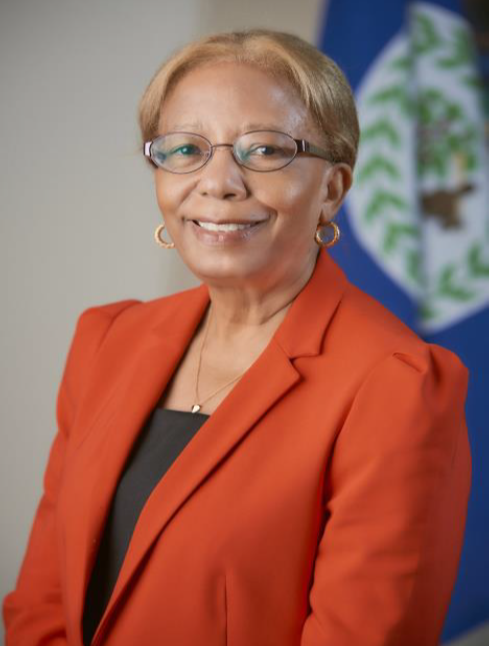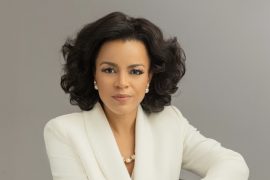An old and reverberated cliché – ‘’Women represent the least valued and the most under-tapped resource,’’ remains true today as it was in time past. The US executive and author Sheryl Sandberg could not have put it better when she said “We must raise both the ceiling and the floor’’ in our struggle to get more women to the top. ‘’When women access their rightful opportunities when their talents are made to shine without hesitation when they have access to education, training and finance when their standing is determined by results and not gender, the effect will be spectacularly transformative, and will represent a return on investment beyond what is imagined by the most progressive amongst us.’’
This powerful and convincing case for gender diversity and inclusion as well as other matters of importance were highlighted in this inspirational and exclusive Amazons Watch Magazine interview with Ambassador Audrey Joy Grant. A very seasoned leader whose influence and impact span across the Americas and Europe. Excerpts;
You have held several international leadership positions and served your country in different capacities, as an Ambassador, a Senator, the country’s first Minister of Energy, Science & Technology and Public Utilities, and Governor of the Central Bank of Belize. Positions which are not often held by women in many developing nations. Kindly share with us some of your experiences in your career journey, breaking through these diverse barriers, and some of the steps that could be taken to assist women in these regions assume leadership positions.
Early in my executive journey, I determined that performance and results were my best advocates. I strove, therefore, to attain excellence so that the traditional gender barriers could not be justified by my naysayers. Thankfully, in my home, in the classroom and in my circle of influencers, there was a common focus on over-achievement, which, in most instances, will erase the pretext for gender discrimination. That is not to say that I was not made to feel, and sometimes even told that my lofty pursuits were beyond the acceptable boundaries of my gender and in other instances, both gender and nationality. Gender barriers, inherently artificial and unjust, cannot withstand the force of a results-oriented professional.
Foremost for our region’s women is the need for the opportunity – early child care, education, the chance for speciality training, for university and higher education slots. To a great extent, from a legal standpoint, much progress has been made to flatten the professional playing field.
But, to continue with this analogy, to critique women’s quality of play while depriving them of the facilities and tools to excel, is both regressive and duplicitous. State and private sector alike must confront the vestigial hurdles women face, in every strata of the workplace, at entry and board room levels. And more can be done in the realm of communications, especially now with the breadth and effectiveness of social media platforms, to call out cases of discrimination and exalt the achievements of women.
“She-roes”, as Maya Angelou reminded us, should be recognized and celebrated.
One of the standout features of your term as the Central Bank Governor of Belize is the stability of the economy. Largely an agro-based, export-driven economy there are still lingering concerns about how the fluctuation in the prices of these commodities largely affects the country. What are the corrective measures in place to check this?
The most important function of the Central Bank of Belize (CBB) is to protect our fixed exchange rate, which has been and remains the singular sentinel for stability and prosperity in our country. Managing our foreign exchange structure, then, is a delicate balancing act, ensuring the smooth inflow of FDI, facilitating currency outflows for vital inputs and machinery and equipment for our productive sector, ensuring external debt-service capacity for the Government and protecting the purchasing power of the Belize citizenry. Thereafter, financial sturdiness is a crucial calling for our CBB, enforcing prudential standards, harnessing a modern payments system, acting as lender of last resort, and most recently, coordinating a viable deposit insurance system.
Belize has a mixed economic system which includes a private-enterprise system, combined with centralized economic planning and government regulation. How convenient and appealing has foreign direct investment being with this system?
Foreign Direct Investment’s (FDI) quest for higher returns is overrated; stability of returns, even if more modest is also crucial to the wise global investor. As the Great Recession of 2008 so vividly illustrated, only the state and state-sponsored institutions can serve as ultimate guardians of the economic system. This is not to suggest that our investment framework – laws, FDI incentives and the overall architecture of free-market capitalism – is not designed to maximize investor and shareholder returns. I simply underscore that our “mixed economy” has brought some balance to the creation and distribution of wealth.
Gender mainstreaming is one of the cardinal objectives of the Amazons Watch Magazine. With your position as the country’s chief financial regulator, how much effort is put into this, seeing that it is a global concern?
For some time now in Belize, major policy decisions, initiatives and laws are subject to a thorough assessment of their gender implications. In fact, the first dedicated Cabinet portfolio for Women’s Affairs emerged almost 30 years ago. Despite this and other groundbreaking steps, the participation of women at the higher echelons of politics and business remains inadequate, and thus, our advocacy effort continues.
A 2014 report by the International Finance Corporation – IFC stated that Women often bear the brunt of poverty and limited access to economic opportunities, due to unfavourable access to financing; as an expert in innovative financial mechanisms with extensive experience in conservation and sustainable development in developing countries what are your thoughts on addressing and improving women’s accessing to financing?
Indeed, enhanced access to financing for women is a proven contributor to growth and development. Currently, the CBB is the lead coordinator for Belize’s first National Financial Inclusion Strategy (NFIS), suffusing with fresh optimism the proponents of gender mainstreaming, since there are various efforts in the Strategy to measurably improve women’s financial literacy and their capacity to access financing–both for personal betterment as well as for business enterprise. The mission for better financial access has also led us to various collaborative actions with the banks and credit unions within our financial sector.
Concerning one of your core mandates which is the promotion of credit and economic growth, we would like to mirror the Grameen Bank’s success in Bangladesh. The women in those rural areas when empowered were found to accelerate the poverty eradication programs. Are there policies that encourage the financial empowerment of women, particularly in your country?
Grameen’s model has long been an inspiration to so many of us in the region. While an exact replication of Grameen has not emerged in Belize, a unique feature of our financial sector is the profile and footprint of membership credit unions that together, hold more than a quarter of national deposits.
The participation of women as Credit Union members, and the predominance of women in credit union management, including the high profile woman founder and manager of the country’s largest credit union, has meant ample and competitively priced financing for women across our country. Our recently launched NFIS will build upon this success.
It is said in social and secular circles that women are better planners. The positions of Governor and Deputy at the Central Bank of Belize are occupied by women. What does this mean to the women in this country?
Symbols of success are inspirational for any group that has endured discrimination. Women thus benefit from role models, from the spectre of current, living, relatable instances of triumph. The CBB is not unique in this regard, though.
The glass ceiling has been shattered in Parliament, the Civil Service, the private sector, major NGOs, the Judiciary, to mention just a few areas where women continue to excel in our society.
The 2019 edition of the Amazons Watch Magazine and Centre for Economic and Leadership Development’s SAMEAWS, is themed Developing Female Transformational Leaders: A New Paradigm for Growing Emerging Economies. We’d crave your indulgence for a preamble. We are looking at the Business Case for Gender Lens Investing, as one of the key sessions of the summit. As a panelist in this session and one who has had the apex-level experience in the investment world, what are those sentiments that derail the efforts of women in the investment circle?
I would posit that women, as a resource for development, represent the least valued and the most under-tapped. The US executive and author Sheryl Sandberg is right: our struggle is as much about raising the floor as it is about shattering the ceiling. When women access their rightful opportunities, when their talents are made to shine without hesitation, when they have access to education, training and finance, when their standing is determined by results and not gender, the effect will be spectacularly transformative and will represent a return on investment beyond what is imagined by the most progressive amongst us.





Comments are closed.